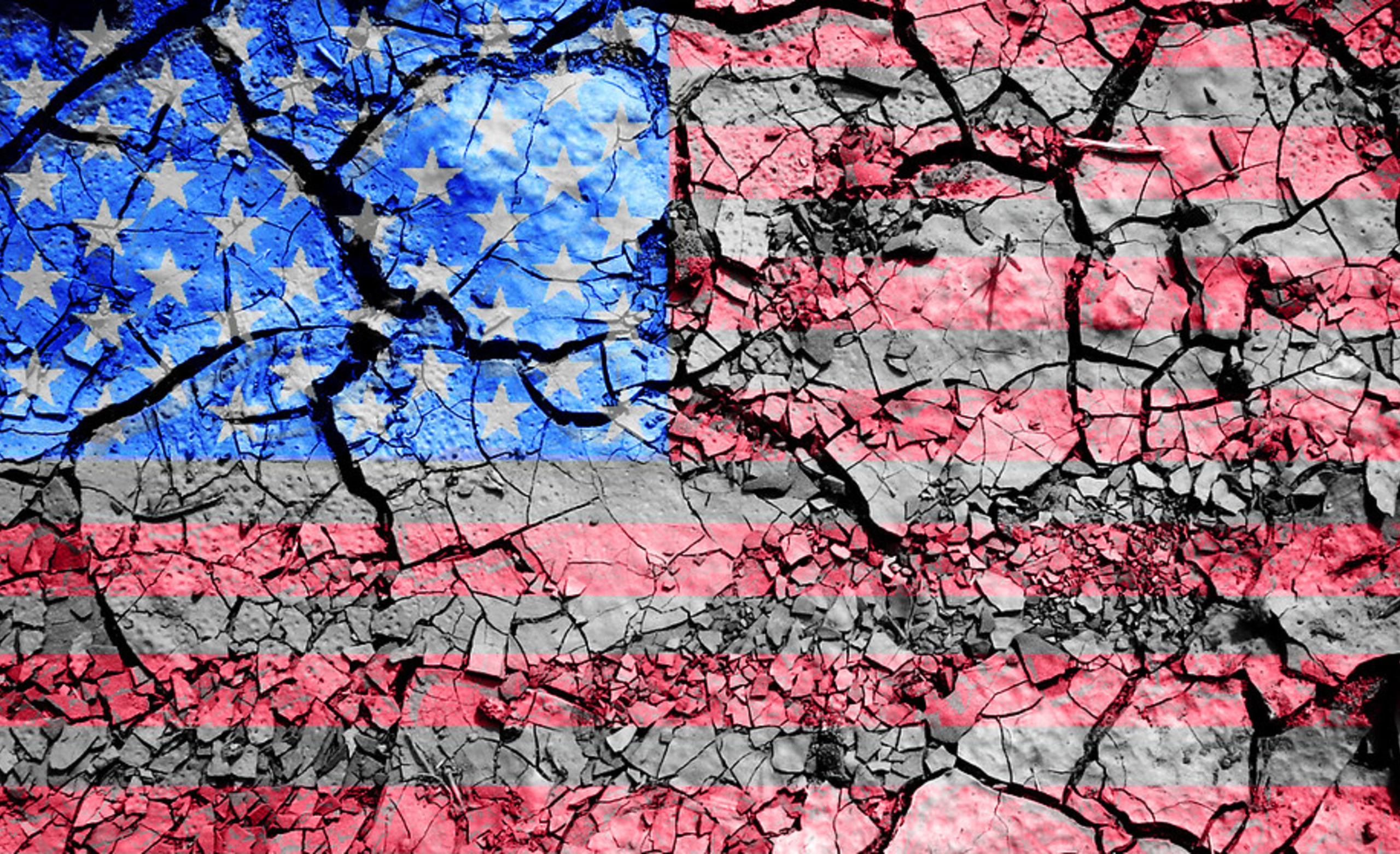
How To Survive Political Chaos
This blog will guide you through understanding how to survive political chaos, its impacts on society, and practical strategies for maintaining your peace of mind. Political chaos can feel like a storm brewing on the horizon.
With constant headlines and social media alerts, it’s easy to become overwhelmed by the swirling tides of uncertainty. As tensions rise and opinions clash, many find themselves searching for ways to stay grounded amidst the noise.
Whether you’re passionate about politics or simply trying to navigate everyday life in these tumultuous times, knowing how to survive political chaos is essential. Get ready to explore tips that empower you while examining historical examples of resilience in the face of upheaval. Join us as we delve into this crucial topic together!
Understanding the Current Political Climate
The current political climate is a complex web of emotions and ideologies. Polarization seems to be the new norm, with people often divided along party lines. This division can create an environment where constructive dialogue feels nearly impossible.
Social media plays a significant role in shaping perceptions today. With information at our fingertips, it’s easy to fall into echo chambers that reinforce existing beliefs. Engaging with diverse viewpoints becomes crucial for understanding the bigger picture.
Global events also contribute to this chaos. Economic instability, social justice movements, and international conflicts all intertwine with local issues, creating layers of complexity that challenge traditional narratives.
As we navigate these turbulent waters, it’s important to recognize how interconnected everything truly is—politics affects personal lives in profound ways. Understanding this landscape helps us brace ourselves against the storm while seeking paths towards clarity amidst confusion.
The Effects of Political Chaos on Society and Individuals
Political chaos can create a ripple effect throughout society. Trust in institutions erodes, leading to skepticism about government and media. This environment fosters division among communities. Individuals often experience heightened anxiety and uncertainty.
The constant barrage of news updates can feel overwhelming, making it hard to focus on everyday life. Many find themselves questioning their values and beliefs as they navigate this turbulent landscape. Social relationships may strain under the weight of differing political views.
Friends or family members might clash over opinions, causing rifts that seem insurmountable. Economic consequences are also prevalent during times of turmoil. Job security becomes shaky, investments falter, and people worry about their financial future. In essence, political chaos not only impacts public discourse but seeps into the very fabric of daily living for individuals everywhere.
Tips for Surviving Political Chaos:
Stay informed, but don’t let it consume you. It’s easy to get lost in a whirlwind of news cycles and social media debates. Choose credible sources and set limits on your media consumption. Give yourself breaks to recharge.
Focus on what you can control. You may not influence national policies, but local involvement is within reach. Engage with community initiatives or volunteer for causes that matter to you. Prioritize self-care and mental health during turbulent times.
Practicing mindfulness or staying active can ground you amidst chaos. Remember, taking care of yourself strengthens your ability to face challenges. Engage in productive discussions rather than heated arguments.
Sharing perspectives can foster understanding and lead to solutions instead of division. Approach conversations with an open mind—everyone has something valuable to offer, even if they see things differently from you.
A. Stay Informed but Avoid Obsessing
Staying informed in times of political chaos is crucial. Access to reliable news helps you understand the landscape around you. It allows for better decision-making and awareness. However, there’s a fine line between being informed and obsessing over every detail.
Constantly refreshing news feeds can lead to anxiety and frustration. Choose specific times during the day dedicated to catching up on current events instead of having an endless cycle of updates. Engage with diverse sources but focus on quality over quantity. Consider limiting your consumption to trusted outlets that provide balanced perspectives without sensationalism.
Remember, it’s okay to take breaks from the news entirely when it feels overwhelming. Your mental health matters just as much as staying updated about what’s happening in society. Embrace moments of silence amidst the noise; it’s necessary for clarity and peace of mind.
B. Focus on What You Can Control
In times of political chaos, it’s easy to feel overwhelmed. The constant barrage of news and opinions can leave anyone feeling powerless. Instead of getting lost in the turmoil, shift your focus to what you can actually control. Identify your immediate environment—your home, your relationships, and your community.
These are spaces where you have a direct impact. Engage with those around you. Start conversations that matter. Foster connections based on understanding rather than division. Consider volunteering for local organizations or initiatives that support positive change.
Every small effort contributes to a larger movement. Practice mindfulness by setting boundaries on media consumption. Limit exposure to distressing news sources while prioritizing quality information instead. By concentrating on manageable aspects of life, you’ll find empowerment amid uncertainty and help cultivate resilience within yourself and others around you.
C. Prioritize Self-Care and Mental Health
Amidst the turmoil of political chaos, self-care becomes essential. It’s easy to feel overwhelmed by constant news cycles and heated debates. Taking time for yourself can shift your focus back to what truly matters. Establish daily routines that include activities you enjoy.
Whether it’s reading, gardening, or simply taking a walk in nature, prioritize these moments as a form of mental health maintenance. They provide necessary breaks from external stressors. Mindfulness practices such as meditation or deep-breathing exercises can also help ground you during turbulent times. Just a few minutes each day can enhance your emotional resilience.
Connect with friends and family who support you emotionally. Sharing thoughts and feelings fosters community and helps mitigate feelings of isolation often brought on by chaos around us. Remember that prioritizing your well-being is not selfish; it’s vital for navigating challenging circumstances effectively.
D. Engage in Productive Discussions and Debates
Engaging in productive discussions and debates can be a powerful way to navigate political chaos. It allows for the exchange of diverse ideas, fostering understanding among differing viewpoints. Approach conversations with an open mind. Listen actively and try to grasp where others are coming from.
This not only enriches your perspective but also promotes respectful dialogue. Avoid confrontational language that may shut down communication. Instead, focus on common ground where possible—shared values often exist even between opposing sides.
Use social media wisely by participating in forums that encourage thoughtful debate rather than divisive rhetoric. Share well-researched articles or personal experiences to back up your points, encouraging others to do the same.
Remember, the goal is not necessarily agreement but mutual respect and learning through discussion—a vital skill during tumultuous times.
Countries that have Successfully Navigated Political Chaos
Several countries have faced political chaos and emerged with renewed strength. One notable example is South Africa, which transitioned from apartheid to a democratic society in the 1990s. The leadership of figures like Nelson Mandela fostered reconciliation and unity, proving that hope can triumph over division.
Another inspiring case is Chile. Following years of dictatorship and unrest, its citizens embraced democracy in the late 20th century. Structural reforms laid the groundwork for stability, showing how societal resilience can lead to progress.
Vietnam also transformed itself after decades of war and political turmoil. Through economic reforms known as Đổi Mới, it shifted towards a market economy while maintaining political control, leading to impressive growth rates.
These examples highlight that navigating through chaos often requires visionary leadership and collective determination from the populace. Each country’s journey underscores the potential for recovery amid adversity.
How to Avoid Political Chaos in America
History offers valuable insights into preventing political chaos. Take a moment to look back at past events, such as the Civil Rights Movement or the Watergate scandal. Both showed how civic engagement can lead to change.
Another important lesson is the need for transparency in governance. Citizens must hold their leaders accountable. When trust erodes due to corruption or secrecy, society fractures. Promoting education also plays a crucial role.
An informed electorate is less susceptible to manipulation and fear-mongering tactics. Knowledge empowers individuals and promotes critical thinking. Fostering dialogue across differing viewpoints helps bridge divides too. Encouraging open discussions cultivates understanding and reduces polarization within communities.
History teaches us that resilience can be built through unity during tough times. Collective action strengthens democracy and creates pathways toward stability and peace in challenging political landscapes.
Financial Planning for Uncertain Times
Navigating financial uncertainty requires a proactive approach. Start by evaluating your current finances. Know your income, expenses, and savings. Creating a budget is essential during chaotic times. Track where every dollar goes and identify areas to cut back.
Small adjustments can lead to significant savings. Consider diversifying your investments as well. Relying on one source can be risky if the market fluctuates unpredictably. A balanced portfolio might provide more stability.
Emergency funds are vital too. Aim for three to six months’ worth of living expenses set aside in an accessible account. This cushion can alleviate stress during unexpected downturns. Stay informed about economic changes that could impact you personally or professionally. Knowledge empowers better decision-making when faced with challenges ahead.
Conclusion: Finding Peace in the Midst of Chaos
Navigating the turbulent waters of political chaos can feel overwhelming at times. It’s important to remember that amidst the noise, there are ways to find your footing. By staying informed without falling into a trap of obsession, you allow yourself to remain aware while maintaining your peace.
Focusing on what you can control helps center your thoughts and actions. It’s easy to get swept up in factors beyond our influence, but channeling energy into manageable aspects makes a difference. Self-care is not just a luxury; it’s essential during chaotic periods.
Prioritizing mental health ensures that you’re better equipped to face challenges head-on. Engaging in discussions with an open mind allows for constructive dialogue rather than heated arguments. This fosters understanding and promotes unity even when opinions differ.
Countries have gone through their own storms and emerged stronger by learning from history’s lessons. Those insights reveal pathways forward as we work together toward stability. Financial planning becomes crucial during uncertain times; having strategies in place offers security when external conditions fluctuate unexpectedly.
Finding balance might seem elusive, yet it is achievable amid turmoil if we embrace these practices consistently. Even small steps can lead us toward tranquility within ourselves regardless of what unfolds outside our doors—cultivating resilience as we learn how to survive political chaos with grace and strength.






